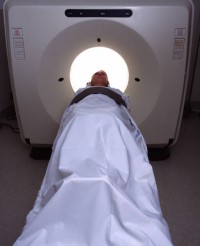
There is no more emotionally charged and frightening word than cancer. When spoken in a doctor’s office, patients immediately assume the worst and start counting their days. Most patients consider a cancer diagnosis a death sentence. When cancer screenings detect an abnormality they panic, subjecting their bodies to surgery, chemotherapy and radiation in a desperate bid to live. And even if they survive cancer, most live in constant fear that it will return.
A National Cancer Institute advisory panel sent shock waves coursing through the cancer community this week when scientists recommended that:
- The definition of cancer be redefined and updated to reflect modern scientific and medical findings. One of the problems with cancer diagnosis, Dr. Otis Brawley, the American Cancer Society’s chief medical officer, told CNN Health is that oncologists are still using cancer definitions developed in the 1850s. Back then, cancer typically spread through the body before it was diagnosed. Today, cancer screening methods allow oncologists to examine minute samples measured in millimeters. In evaluating such small tissue samples, natural abnormalities can be misdiagnosed as cancer.
- The diagnoses of certain illnesses be changed to eliminate cancer references or cancer language. In other words, some diseases currently defined as cancer would no longer be considered cancerous. As explained in a CBS News report, there are certain potentially pre-cancerous conditions that carry only a slight risk of becoming cancerous. Yet because they are defined as “cancer,” “carcinoma” or “neoplasia” patients panic and often undergo unnecessary surgery, chemotherapy or radiation, frequently suffering damaging side effects.
Next time: Do cancer screenings result in overtreatment
